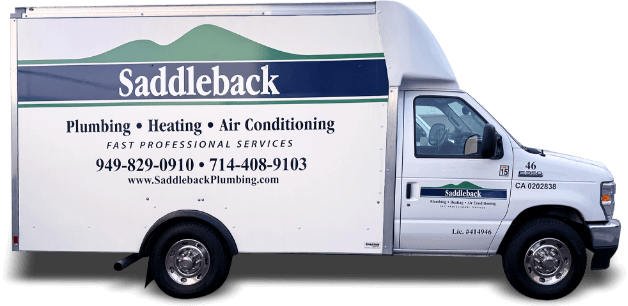No matter how well you take care of your air conditioner, there will come a time when you have to replace it with a new one. You can invest in the best possible system, schedule maintenance once a year, and have any apparent problems repaired as soon as they appear—but there’s nothing you can do to stop a system from simply wearing out after a while, even if it was professionally installed. Knowing when to install a new air conditioner is a key part of long-term comfort planning. Air conditioner installation often begins with a free no-obligation on-site consultation. Our expert installation services ensure that your new system is set up correctly, providing you with peace of mind and ongoing support. We accommodate clients’ preferences regarding how to access the home and backyard for the installation, ensuring a smooth and hassle-free experience.
So how can you tell when it’s time to get rid of your old system and invest in a replacement system? Regular maintenance extends the life of air conditioning systems, but even with proper care, there comes a point when replacement becomes the more practical option.
Replace Your AC: A Quick Overview
Air conditioning is a crucial aspect of modern life, providing a comfortable and healthy indoor environment, especially in warm climates like Irvine, CA. With the increasing temperatures and rising utility costs, it’s essential to have an efficient HVAC system that meets your heating and cooling needs. Providing high-quality equipment tailored to your specific requirements ensures optimal performance and longevity. In this article, we’ll explore the world of air conditioning, including the benefits of replacement, choosing the right cooling system, and the importance of proper installation. AC installation can increase a home’s value by about 10%, making it a worthwhile investment for homeowners.
How to Know Your AC Is Failing
Recognizing the signs of a failing air conditioner can save you from unexpected breakdowns and costly repairs. One of the first indicators is a noticeable increase in your utility costs. If your air conditioning system is working harder to cool your home, it will consume more power, leading to higher bills. Reduced airflow is another red flag; if certain rooms in your home are not cooling as efficiently as they used to, it might be time to consider a replacement.
Strange noises coming from your AC unit, such as grinding, squealing, or banging, can also signal that something is wrong. These sounds often indicate that internal components are wearing out or malfunctioning. Listening for unusual AC noises can help catch issues before they become major problems. Additionally, if you notice water or refrigerant leaking from your air conditioner, it’s a clear sign that the system is failing. Leaks can cause significant damage to your property and pose health risks.
Frequent cycling, where the air conditioner turns on and off more often than usual, is another symptom of a struggling system. This not only reduces efficiency but also increases wear and tear on the unit. Lastly, a failing air conditioner can lead to higher humidity levels in your home, making it feel uncomfortable and potentially causing mold growth. If you experience any of these issues, it may be time to replace your air conditioning system.
AC Age: When It’s Time to Move On
Most air conditioners are built to last anywhere between 10 to 15 years. When the time comes to replace an old air conditioner, the job of installing a new or replacement system should be done efficiently and to a high standard. Ensuring customer satisfaction during the replacement process is crucial, as it helps build strong relationships and leads to returning customers. Choosing a reliable manufacturer is also important for long-term efficiency and reliability.
That doesn’t mean that your air conditioner can’t last beyond that, but most systems will fail around that time. Even if your air conditioner is working perfectly fine past 20 years of age, you would likely save more money by upgrading to a more efficient system. The installation cost is generally lower when replacing an outdated system than for first-time installs.
Is Your AC Wasting Energy?
As a system gets older and wears out, it will slowly start to lose the ability to provide as much output as it once did. That will cause the system to start having to operate for longer and longer to achieve the same results, which will in turn lead to an increase in operating costs. If you start to notice your electric bills steadily rising over several months while you’re using your air conditioner, it may be time to replace your HVAC unit. Our NATE-certified technicians can ensure that your new system is installed to the highest standards. Consider a heat pump as an efficient replacement option, offering energy savings and the ability to customize heating and cooling throughout your home. A system with a higher SEER rating costs more upon installation but can save money in the long run as yearly electricity costs are lower. Learn how SEER ratings impact your AC efficiency.
Regular maintenance procedures are essential to ensure your system operates efficiently and prolong its lifespan.
When Repairs Become Too Frequent
Normally, an air conditioning system won’t need repairs more than once or twice a year at most. In older systems, however, the wear and tear of years of use can cause various parts of the system, including the furnace, to fail in rapid succession. This can result in having to repair your air conditioner every few months. If that happens, it’s time for a new air conditioner. Air conditioning systems require regular check-ups to avoid emergencies, ensuring they operate efficiently and reliably.
Replacing both your furnace and air conditioner simultaneously can offer significant financial benefits and improve energy efficiency and comfort.
Why You Need a Pro for AC Replacement
Professional installation of an air conditioning system is crucial for ensuring optimal performance and longevity. A professional installer will conduct a thorough assessment of your home’s size, insulation, and heating and cooling needs to determine the proper size and type of AC system for your property. This tailored approach ensures that your new system operates efficiently and effectively, providing consistent comfort throughout your home.
Proper installation can significantly reduce energy costs by maximizing the system’s efficiency. A professional installer will ensure that all components, including ductwork, are correctly sized and installed, preventing common issues such as air leaks and uneven cooling. This attention to detail not only improves indoor air quality but also extends the lifespan of your air conditioner, saving you money on repairs and replacements in the long run.
Moreover, a professional installation includes a comprehensive inspection of the entire system to ensure it is functioning safely and efficiently. This thorough approach helps identify and address potential issues before they become major problems. By choosing a professional installer, you can have peace of mind knowing that your air conditioning system is set up to provide reliable and efficient cooling for years to come.
What Drives AC Replacement Costs?
The cost of installing a new air conditioning system can vary widely based on several factors. One of the most significant factors is the type and size of the system you choose. High-efficiency systems and premium brands tend to be more expensive upfront but can offer long-term savings through reduced energy costs. The complexity of the installation also plays a role; for instance, homes with intricate layouts or older properties may require more extensive work, increasing labor costs.
The cost of the AC unit itself is a major consideration. While high-efficiency systems come with a higher price tag, they can significantly lower your monthly utility bills. Additionally, the cost of ductwork and installation materials, such as insulation and wiring, can add to the overall expense. Labor costs can vary depending on your location, with urban areas typically having higher rates than rural areas.
Permits, inspections, and other regulatory requirements can also impact the total cost of installation. It’s essential to work with a reputable and experienced installer who can provide a detailed estimate of all costs involved and help you navigate the entire process. Financing options may be available to make the installation more affordable, and some manufacturers offer rebates and incentives for energy-efficient systems.
Lastly, the time of year can affect installation costs. Peak season installations, usually during the summer, tend to be more expensive due to higher demand. Scheduling your installation during the off-season can help you save money. By considering these factors and working with a professional installer, you can ensure a smooth and cost-effective installation process for your new air conditioning system.
Top Reasons to Upgrade Your Air Conditioner
Replacing an old air conditioning system can have numerous benefits, including improved efficiency and comfort for your entire home, reduced utility costs, and enhanced indoor air quality. A new AC system can also increase the value of your property and provide a more comfortable living space. Additionally, modern air conditioners are designed to be more environmentally friendly, using less power and reducing greenhouse gas emissions. Energy efficient air conditioners may be more expensive up front, but they result in lower monthly utility bills and overall utility costs. Carrier systems, known for their energy efficiency and durability, offer significant benefits and are a popular choice among homeowners. When considering replacement, it’s essential to choose the right cooling system for your home, taking into account factors such as size, efficiency, and budget.
How to Select the Best New AC for Your Home
Selecting the right cooling system for your home can be a daunting task, with numerous options available in the market. It’s crucial to consider factors such as your home’s size, insulation, and windows, as well as your budget and personal preferences. A professional HVAC technician can help you determine the proper size and type of system for your home, ensuring efficient and effective cooling. Some popular options include central air conditioners, heat pumps, and ductless mini-splits, each with its unique benefits and drawbacks. A larger home typically requires a more robust and customized AC system. An in-home consultation with a Comfort Advisor can provide tailored recommendations based on a thorough assessment of your home’s size, layout, and existing systems. By choosing the right cooling system, you can enjoy a comfortable and healthy indoor environment while minimizing your utility costs.
Ready for a New AC? Final Thoughts
In conclusion, knowing when to replace your air conditioner is crucial for maintaining a comfortable and efficient home. By considering factors such as the age, efficiency, and repair frequency of your current system, you can make an informed decision about when to invest in a new air conditioning system. Remember, a new system can offer numerous benefits, including improved efficiency, reduced utility costs, and enhanced indoor air quality. If you’re unsure about the condition of your current system or need help choosing the right replacement, don’t hesitate to seek professional advice from a reputable company.
Our recent projects, such as the installation of Carrier A/C units in an Orange County residence, showcase our expertise and commitment to providing high-quality air conditioning system design and installation.
If you need a new air conditioner, call Saddleback Plumbing. We install new air conditioners throughout Orange County, CA.











